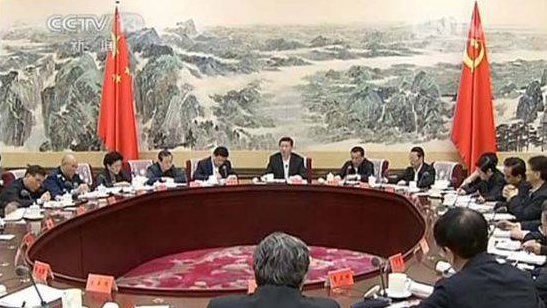
Politics
19:26, 10-Jul-2017
President Xi calls for efforts to advance judicial reform

Chinese President Xi Jinping has called for efforts to advance reform of the country's judicial system and follow the path of socialist rule of law with Chinese characteristics.
Xi made the remarks in a written instruction conveyed to a national conference on judicial reform held on Monday in Guiyang, in southwest China's Guizhou Province.
Comprehensively deepening reform is a strategic decision made by the Third Plenary Session of the 18th CPC Central Committee.
The top-down legal reform
The Chinese legal system is a socialist system of law based primarily on the Civil Law model. It covers laws that fall under seven categories and three different levels. The seven categories are the Constitution and Constitution-related, civil and commercial, administrative, economic, social, and criminal laws and the law on lawsuit and non-lawsuit procedures. The three different levels are state laws, administrative regulations and local statutes.
The reform of the judicial system in China has been a high-frequency word since the first meeting of the Central Committee on 22 January 2014. Along with a top-down decision, the judicial reform in China is moving ahead.
Part of fair judgment made, Chinese legal reform also pays attentions to judge personal behavior. The reform requires judges take their responsibility of the "wrongful judgments". Also, the court “guideline” provides that judges who “accept bribes, forge evidence or hide key information” will be held responsible too.
Innovation Achievements Reform
Technology plays an important role in Chinese legal reform, with the Internet helping the judiciary carry out its work with greater efficiency.
Internet brings more benefits to today's legal system. Along with "case of different judgments", "automatic analysis", "intelligent simulation trial", "full-time" trial network broadcast, and modern technology, Internet not only has the foresee-ability and accuracy, but also can improve the judicial quality in terms to the court decision.
Facing challenges
The biggest challenge the reform faces is to keep local judges in place. Although judges working condition has a great improve since 2014, some of them still facing an environment which is under low paid, high pressure and lack of security protection. Thus, improves all local judges working condition becomes one of the most important issues to achieve the legal reform.
Parts from that, local judge's lack of the legal experiences also holds the reform back. Average Chinese local judges only have 4-5 yeas legal experiences, which are less form the 8-10 years general request in legal area, due to a long promotion process in system, according to a recent statistics.
Comprehensively implementing the rule of law was included in the strategy at the Fourth Plenum of the 18th CPC Central Committee, which said that the rule of law is a prerequisite and guarantee for developing socialism with Chinese characteristics.

SITEMAP
Copyright © 2018 CGTN. Beijing ICP prepared NO.16065310-3
Copyright © 2018 CGTN. Beijing ICP prepared NO.16065310-3